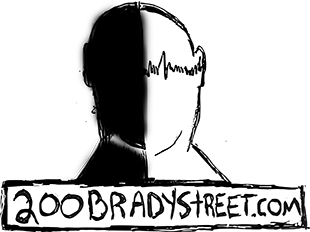It started with a ticket
A winter parking bylaw violation, issued on a day with zero snow on the ground, and none in the forecast. The law was meant to support snow removal, a reasonable public safety measure. But in this case, there was no snow, no plow, and no actual obstruction. I was fined anyway.
THE FUEL
That sparked a question
If laws are enforced without regard for real world conditions, what logic is actually at work? I contested the ticket. I showed up in court. The city didn’t.
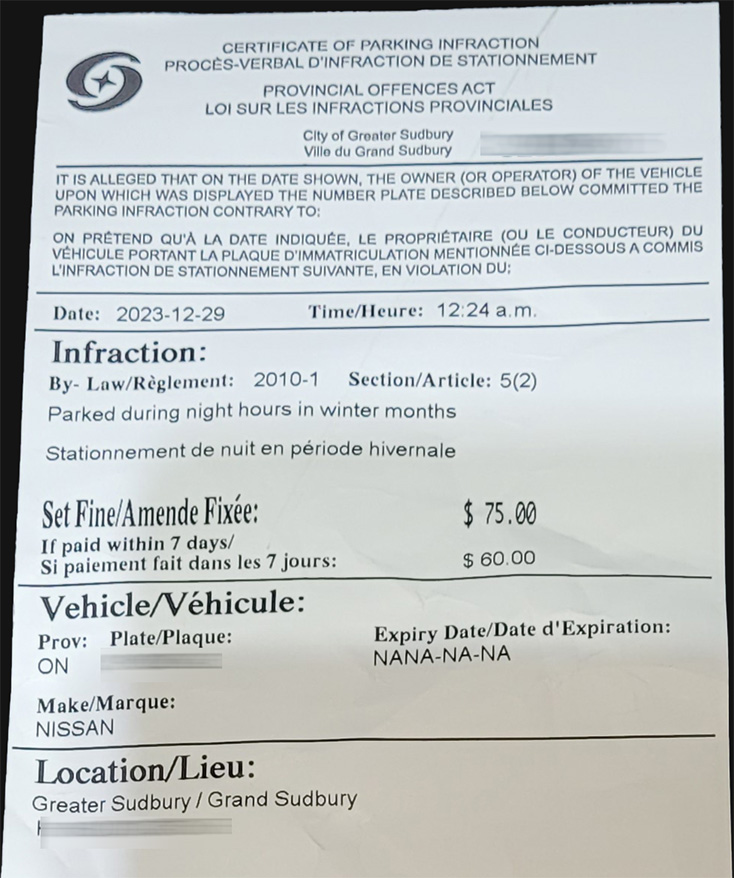
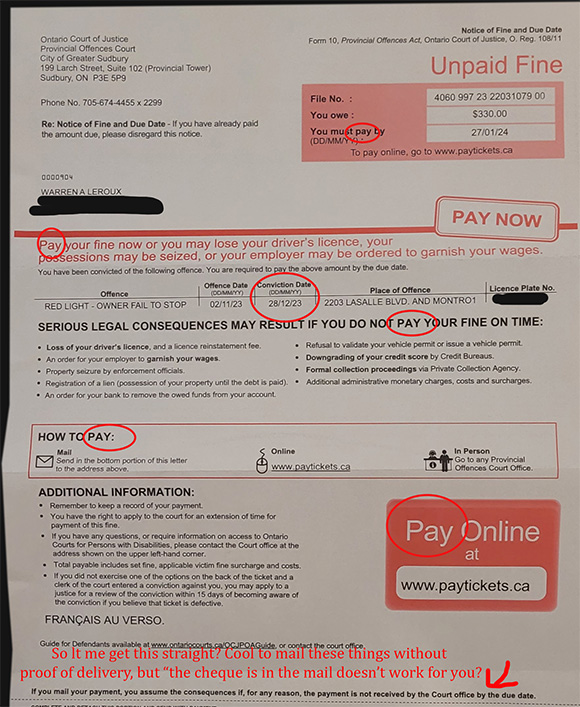
NO PROOF OF DELIVERY REQUIRED
The Red Light
Then, without warning, I received an “ unpaid fine reminder” that indicated I’ve been convicted for a red light camera infraction. I never received a ticket. No prior notice. No warning. No proof of delivery required. The system assumed I received it and proceeded without me. I filed an affidavit, challenged it and won, but something stood out at the bottom of that notice: “If you mail your payment, you assume the consequences if, for any reason, the payment is not received by the court office by the due date.” So let’s get this straight. The city can mail you a ticket with no proof it ever arrived but you must prove that your mailed payment did. Due process shouldn’t work like a one way street. The system doesn’t need proof you got the ticket but you’d better have proof you paid it.
CIVIC LOGIC GAP
Efficiency isn’t the same as fairness
That’s when something else stood out. In Ontario, red light and camera tickets are issued to vehicle owners, not drivers They carry no demerit points and don’t affect your driving record yet they include a victim surcharge, a fee originally designed to support victims of crime That seemed odd. These tickets are treated procedurally like parking violations, no license number required, no personal accountability, yet the financial penalties mimic those for criminal offences. Parking tickets, by law, are exempt from victim surcharges. So why not these? Who is the “victim” in a camera issued fine with no accident, no contact, no harm? Shouldn't a victim surcharge follow a process that actually identifies, or involves a victim? This wasn’t just a policy quirk. It reflected something deeper: A system optimized for collection, not correction. Automated. Unquestioned. And not always logically applied.
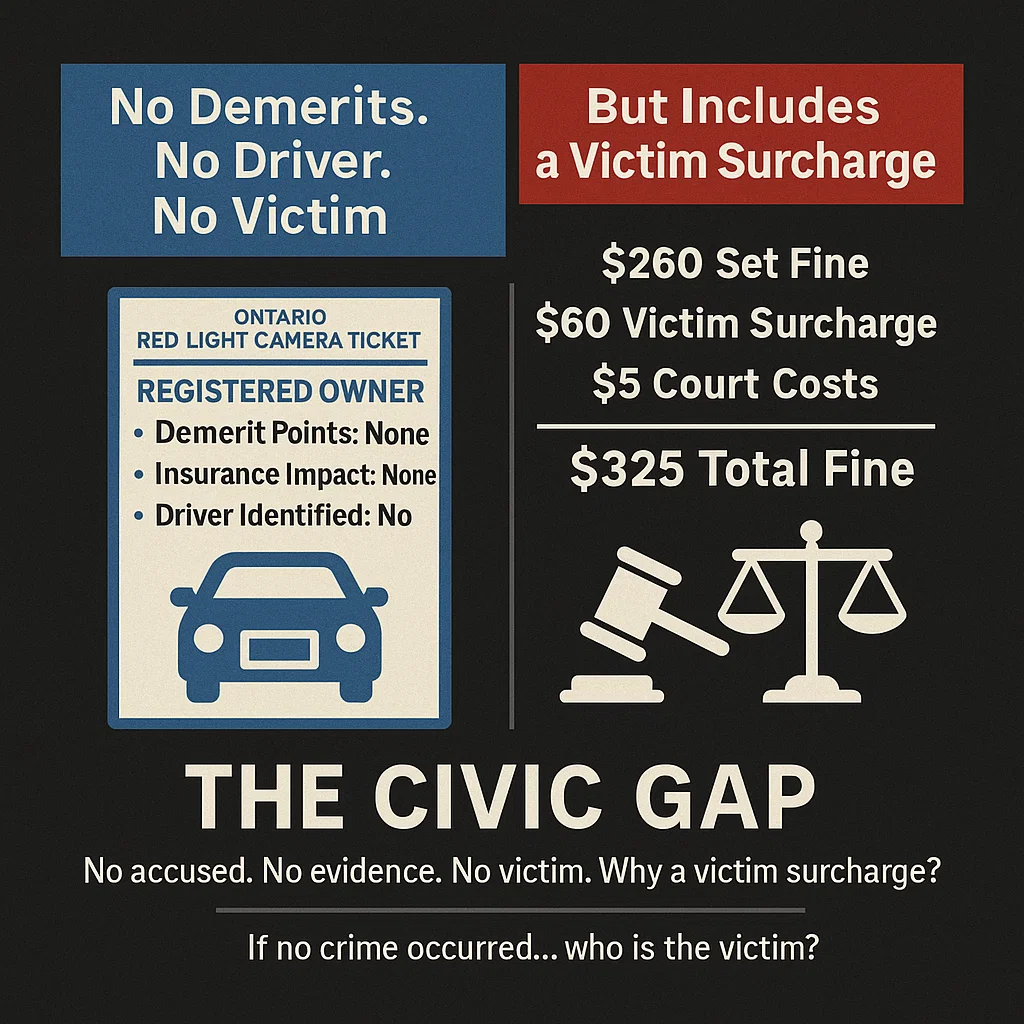
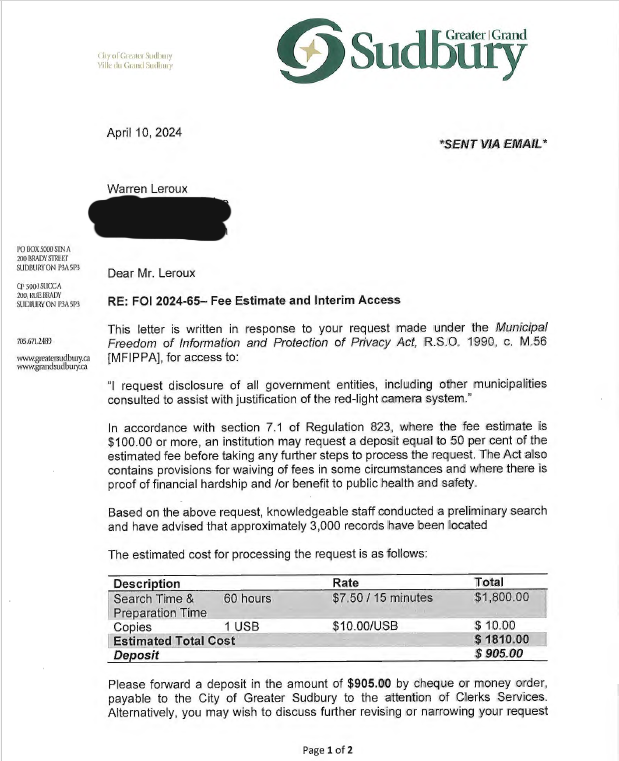
THE FREEDOM OF INFORMATION REQUEST
Just file an FOI
I did. I asked the city who they consulted before deploying automated red light enforcement, a basic transparency question. The answer came back: over 3,000 pages. Estimated fee: $1,810.00. Sixty hours of staff time. No guarantee of what I’d receive. No assurance it wouldn’t be redacted. That was the moment the personal became civic.
THE QUESTIONABLE SILENCE
From One Ticket to a Bigger Question
The red light ticket wasn’t just a mistake it revealed a structure. A structure where the rules are enforced automatically. The cost of questioning them is high. The record of that enforcement is invisible. What started as a frustrating personal experience became something bigger. One ticket became a case study. Then a curiosity. Then a mission. How many others have been ticketed under the same winter bylaw conditions? How many convictions proceed without delivery confirmation? How much enforcement data is hidden behind paywalls like FOI fees? Cities have automated enforcement. But what about oversight? That question and the silence around it is why 200 Brady Street was born.
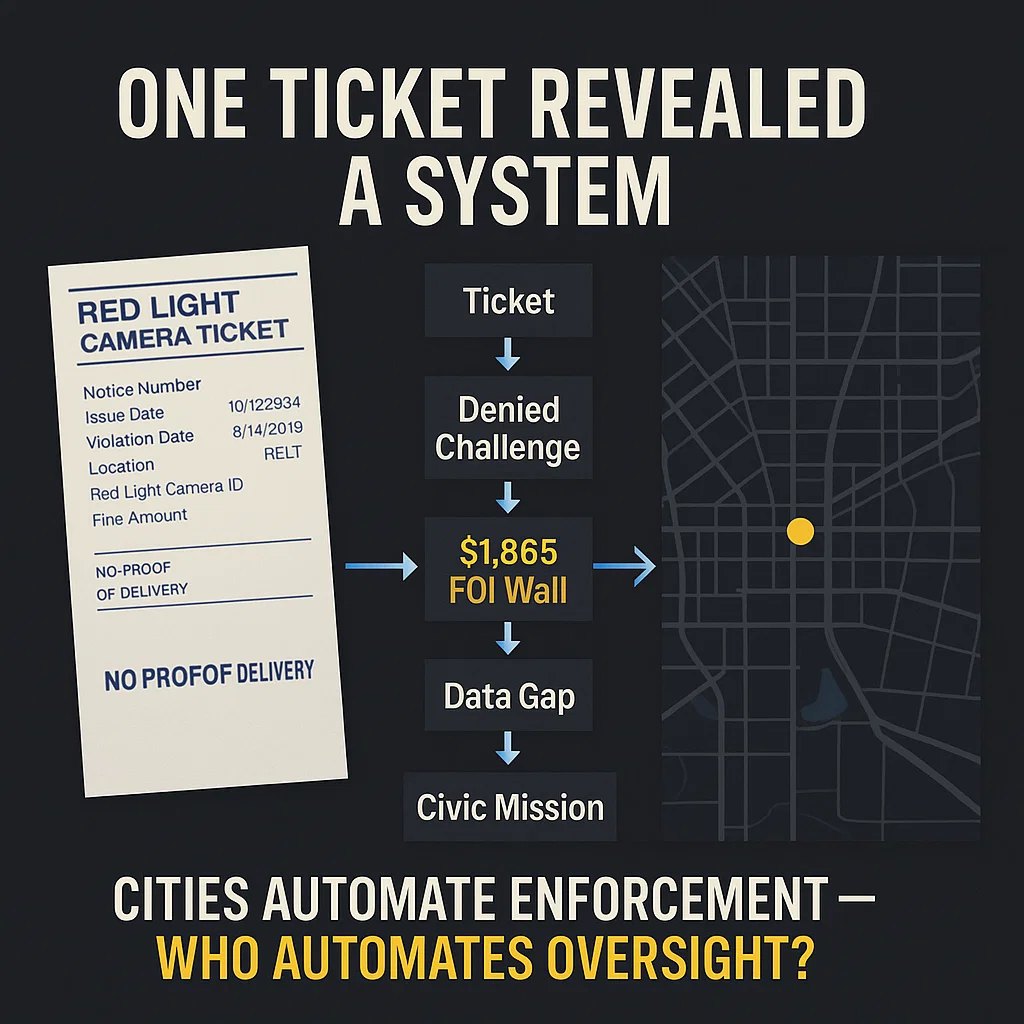
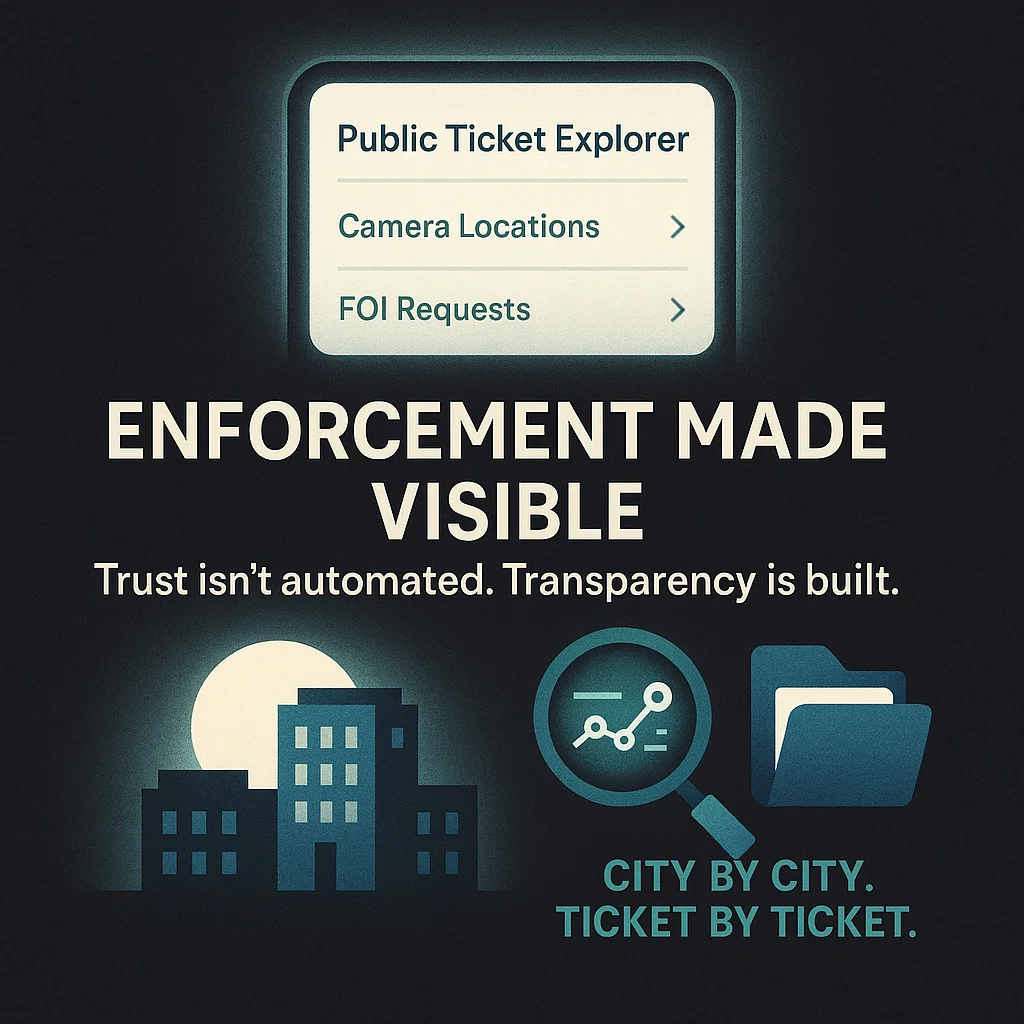
YOU'RE ALREADY PART OF THIS
This Is Where the Work Begins
What started with one ticket led to bigger questions and a realization. We need better visibility into how cities enforce the law. Tickets may be automated, but trust isn’t. 200 Brady Street is about turning frustration into function by building tools that bring enforcement into public view, and into public hands. Not to end enforcement. But to make it accountable. City by city. Ticket by ticket. If that resonates with you, you're already part of this.
